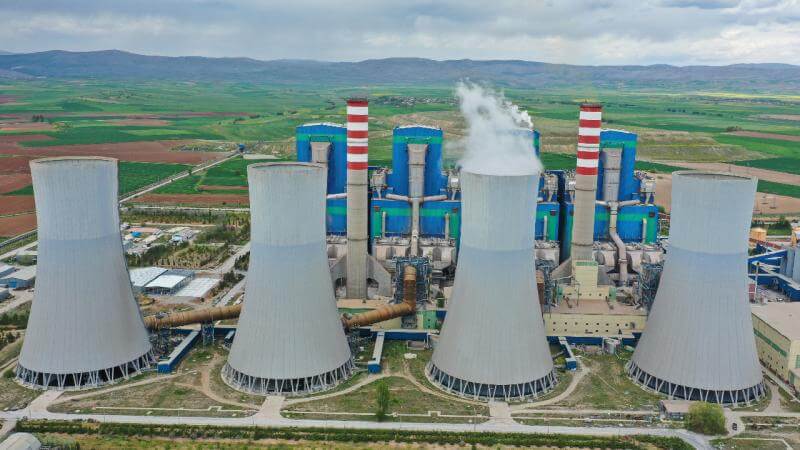Human Rights Watch (HRW) on Monday called on Turkey’s Environment Ministry not to approve plans to add two units to a coal power plant in the southeastern province of Kahramanmaraş, warning of severe health risks to the local population.
The organization’s research highlights dangerously high levels of air pollution in the area surrounding the plant, with residents experiencing a rise in respiratory and cardiovascular illnesses, conditions linked to the toxic emissions from the coal plant.
HRW’s investigation included interviews with 28 local residents, health professionals and officials, along with analysis of air quality data from governmental and satellite sources. Despite early warnings from government officials about a potential “cancer explosion” in the region, there has been inadequate monitoring and enforcement of air quality standards.
The Afşin-Elbistan power plant, which has been operational since 1984, has a troubled history of non-compliance with environmental regulations. HRW pointed out that the plant operated for decades without the necessary technology to reduce harmful emissions. The temporary closure of the plant in 2023 due to earthquake damage led to a notable decrease in pollution levels, underscoring the significant impact of the plant’s operations on local air quality.
The coal mine that supplies the plant is one of the world’s largest fossil fuel projects, capable of producing over 4 gigatons of carbon dioxide, a factor that HRW describes as a “carbon bomb.” The planned expansion of the plant, which would add 688 MW of capacity, threatens to further increase pollution and undermine Turkey’s efforts to transition to renewable energy.
HRW urged the Turkish government to halt the expansion plans and instead focus on phasing out coal by 2030 in favor of renewable energy sources, which already account for 54 percent of the country’s electricity capacity. The organization also called for stricter enforcement of air quality standards, particularly the introduction of limits for PM2.5, a dangerous particulate matter not currently regulated under Turkish law.
Local residents have reported a lack of information and consultation regarding the plant’s expansion, with many expressing concern over the long-term health impacts on their community. HRW emphasized the need for greater transparency and public participation in decisions that affect the environment and public health.
“People in Afşin-Elbistan have been paying the price of coal-based electricity generation for decades,” said Hugh Williamson, HRW’s Europe and Central Asia director. “Instead of expanding a coal plant in an area where people have been exposed to high levels of pollution, the government should urgently protect their lives and realize their right to a healthy environment.”



